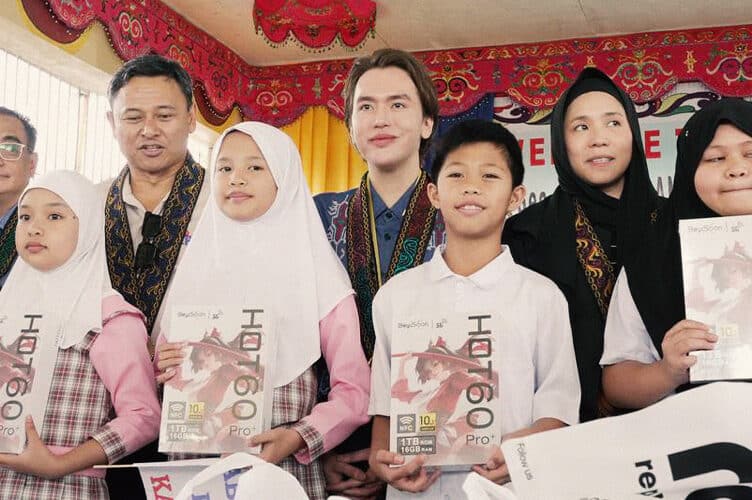ROMANCE is a genre scoffed at by many. They are the butt of everyone’s joke, often portrayed as a category whose audiences are limited to love-crazed teenage girls or bored middle-age housewives.
Even expressing that you like romance, whether it be in fiction or cinema, could feel like an admission of weakness. A shameful sin. A guilty pleasure.
For many, romance is dismissed as kitsch—a genre defined by cheap paperbacks flaunting shirtless men, steamy red lips, and sexually suggestive titles. Tacky themes and questionable storylines reinforce its stigma, often reducing it to mere entertainment rather than a pursuit of literary merit.
In short, romance is treated as the ‘junk food’ of the literary world.
But romance is also a genre dominated by female authors. It is an avenue where women get to embrace their feminine traits as it is fueled by female gaze, fantasies, and desire— things that are commonly neglected in the dominant narrative of a patriarchal structure.
L’écriture féminine
The concept of écriture féminine is never more apparent in any other genre than that of romance.
But first things first: what is écriture féminine?
L’écriture féminine is a literary theory coined by French feminist theorist Hélène Cixous and further developed by Luce Irigaray and Julia Kristeva. It emerged in the 1970s amid the second feminist movement that saw many women fighting for their intellectual and bodily autonomy and rights in Western countries like France, USA, and the others.
This concept aims to challenge the male-dominated structures of language and literature by emphasizing a mode of writing that reflects women’s unique experiences, desires, and bodies.
It does this through the execution of the three core principles:
- Writing the Body – women are urged to write based on their personal experiences, using a language that would fit their own physical, emotional, and psychological realities.
- Fluidity and non-linear style – Écriture féminine subverts the rigid structure imposed on literary works back then, embracing a fragmented, poetic, and free-flowing style of writing that mirrors the complexities of the female experience.
- Multiplicity – It resists the idea of a universal perspective, highlighting the diversity and plurality of the female experience.
In the execution of the romance genre, we see more of the core principles of écriture feminine in play.
For example, the smutty romance novels like 50 Shades of Grey positions the female body as a site of expression, empowerment, and pleasure, whereas in older romance novels, the female protagonist was depicted as prude and following the Christian ideals of the Virgin feminine.
The same can be said for the 2022 South Korean mini-series Love and Leashes, where the woman assumes the role of the ‘Dominant’ in the consensual sadist-masochist relationship. This caused quite a stir in South Korea, whose culture is known to subscribe intensely to patriarchal structure.
Modern romance is not only limited to the exploration of the female body and pleasure. We also see the fluidity and non-linear style of writings in the Wattpad romance novels, which give a platform to young teenage girls to tell their stories the way they want to.
Internalized Misogyny
Despite being a billion-dollar industry, romance has been ridiculed by the larger society even in its beginnings. It is treated as low-brow, receiving little to no respect.
But could it be that our hatred for the romance genre is not really rooted to its inherent qualities but to our deeply internalized misogyny?
Romance, a genre that caters to the needs and desires of women, can be a source of discomfort for a society that attempts to put control over women’s bodies.
And so, their answer to negotiate with this is to treat romance as something ‘not serious’ and not deserving of literary merit. They dismiss romance as a mere love story, as though to imply that love stories are devoid of any kind of substance.
Yet this is not just an attack on romance, but a subconscious derision of the things we associate with women. Yes, it is true that some stories or films that fall under this category could have unhealthy depictions of relationships, especially towards women, but the point still stands that romance, like any other genre, reflects the social and cultural norms we have as a society.
Romance is not just a feminine genre because it’s female-dominated, rather it is the genre that allows women to go through their experiences and desires without any barriers or shame. To label it as not worthy of ‘high culture’ or critical discussions is to treat the female experience as trivial.
How useful was this post?
Click on a star to rate it!
Average rating 0 / 5. Vote count: 0
No votes so far! Be the first to rate this post.
We are sorry that this post was not useful for you!
Let us improve this post!
Tell us how we can improve this post?





